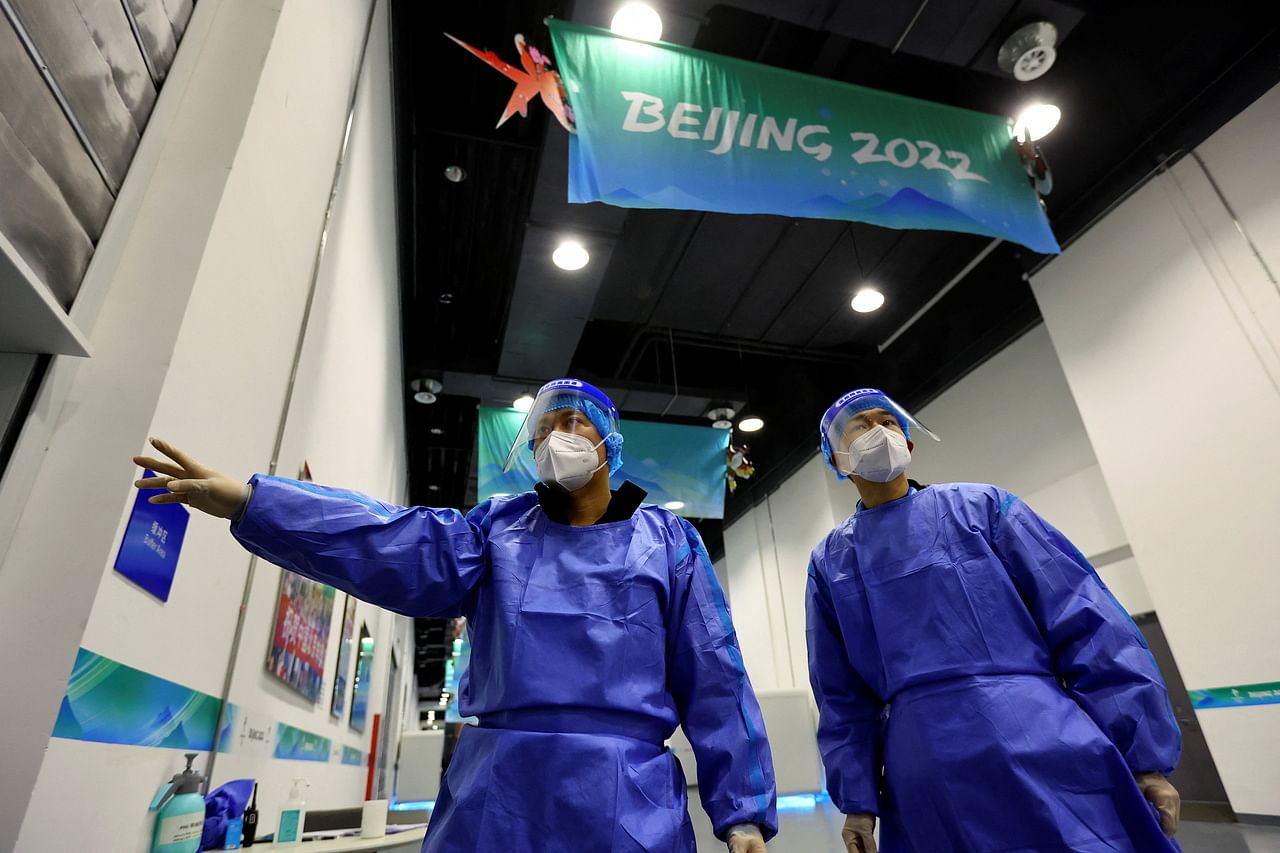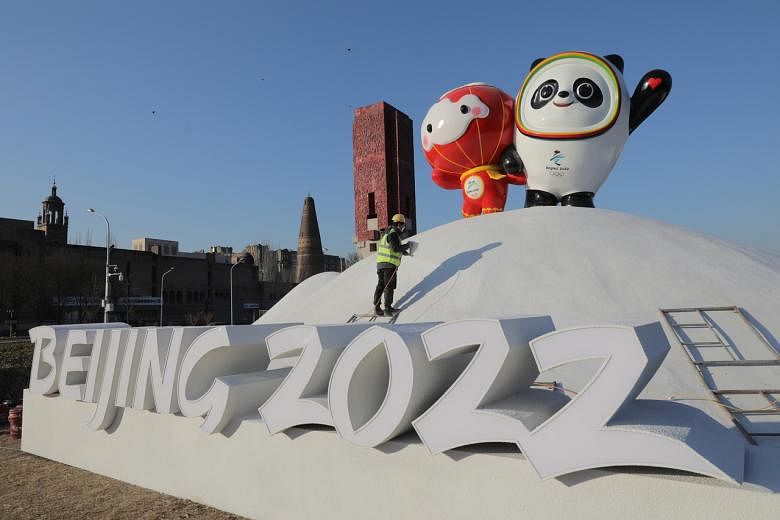BEIJING - Chinese Olympic officials on Tuesday (Jan 11) said there is no plan to lock down Beijing in the lead-up to the Winter Games, adding that even with the emergence of the Omicron variant, the situation is still largely under control.
They warned, however, that this could change if there is a large-scale outbreak within the Olympic Covid-19 bubble.
With just under a month to go before the start of the Winter Olympics, and ongoing Covid-19 outbreaks in several cities including one just 150km away from Beijing, there remain concerns over what form the Games could take.
"Unless there's a cluster that affects those within the closed loop, the situation so far has not necessitated a change in our approach," said Mr Huang Chun, deputy director of the Games Services Department as well as the Pandemic Prevention and Control Office during a virtual press briefing.
He said medical teams and experts are closely monitoring the hyper infectious Omicron variant.
"As to whether the rest of the city will be put under lockdown, there are no such arrangements right now, whether from the city government or the Olympics organising committee," he added.
During the wide-ranging press conference, officials refused to be drawn into whether ticket sales would be open to the public, simply saying that there are considerations and to "wait for the official announcement".
Similarly, when asked about the Olympic torch relay, officials merely said preparations were under way, urging the media to wait for the official word.
There has been a reluctance to commit to opening ticket sales or allowing mass participation, with Omicron flare-ups in Anyang city in Henan province and the northern port city of Tianjin prompting lockdowns.
Both areas are adjacent to Hebei province, which is hosting snow sport competitions during the Winter Olympics, which will take place from Feb 4 to Feb 20.
Meanwhile, China's civil aviation regulator has suspended two flights between Seattle and Shanghai, citing virus concerns. Under rules enacted early on in the pandemic, airlines that bring in positive Covid-19 cases will have their routes suspended for at least two weeks.
China on Tuesday reported 110 new Covid-19 cases, 87 of which were in Henan province. It is unclear whether the cases are linked to the new Omicron variant, but the country has been battling a Delta outbreak since late last year.
Beijing is conducting the Games within a bubble or a closed loop, meaning that athletes and others taking part in the events will be kept away from the public.
The bubble was put into effect last week, with thousands of drivers, logistics workers and volunteers cut off from outside access for weeks until after the events, with a small number of vehicles allowed to move between the Olympic bubbles around the three competition areas.

On Monday, the authorities sparked outrage when they told Beijing residents not to help any Olympic vehicles involved in accidents, in case any of the occupants were infected with Covid-19.
They defended their decision on Tuesday, saying there were 30 ambulances on standby around Beijing to ensure medical attention could arrive "quickly and safely".
A separate media centre has been set up in the heart of Beijing for those who do not wish to enter the Olympic bubble. There are also stringent testing requirements just to enter the downtown press area, with only those fully vaccinated allowed.
Organisers estimate that about 10,000 people will descend on Beijing for the Games, but expect some to drop out for various reasons, including not qualifying, or not meeting Covid-19 entry requirements.
Some 1,500 technicians and media are already in China setting up broadcast equipment.
Beijing will be the first city in the world to have hosted both a Summer and Winter Olympics, a rare feat.
But several countries, including the United States, Britain and Australia, have announced a diplomatic boycott of the Games over what they say is China's human rights record. This means that while their athletes will still compete, there will be no government representatives at the events.
Russian President Vladimir Putin has committed to attending the opening ceremony in person.


